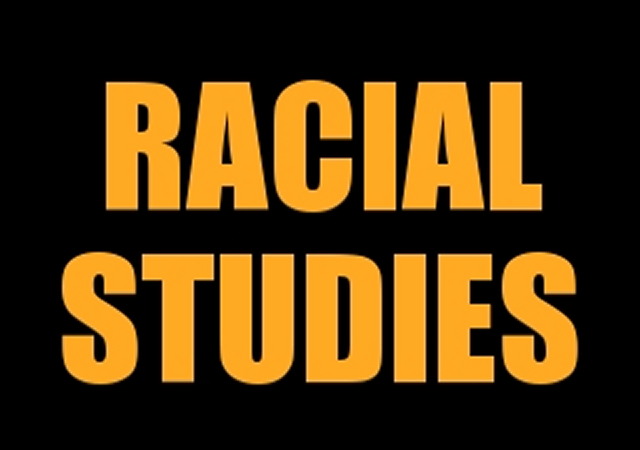U. Colorado Denver Offering ‘Problematizing Whiteness’ Course
“The study of whiteness has always sought to challenge racism, racial privilege, white supremacy, and colorblind racism.”

What do courses like this offer students, other than the advancement of the progressive agenda?
The College Fix reports:
University offers ‘Problematizing Whiteness’ course
In March, I wrote on the “American Political Thought” course offered by the political science department at the University of Colorado Denver that deliberately removed all white males and their contributions from the curriculum, instead focusing on “voices from the margins.”
The trend of anti-white “wokeness” at CU Denver continued this semester. This spring, its ethnic studies department offered a course called “Problematizing Whiteness: Educating for Racial Justice.”
The syllabus, a copy of which was obtained by The College Fix, spells out its details.
“The study of whiteness has always sought to challenge racism, racial privilege, white supremacy, and colorblind racism. However, to overindulge in the spectacle of ‘white racial epiphanies’ overlooks the ongoing work whites must do to participate in racial justice,” it states. “Beyond the feel-good of momentary White racial awareness lurk enormous concerns about how to continually examine Whiteness in order to uphold antiracism, moreover the fruition of a more racially just society.”
Its instructor, Associate Professor Cheryl Matias, said in an email to The College Fix that whiteness is a term often misunderstood.
“Whiteness is not about culture or white skin as your question presumes,” said Matias, who includes in her email signature the moniker “Motherscholar.”
Donations tax deductible
to the full extent allowed by law.








Comments
“Problematizing”. Is that even a real word?
What is colorblind racism?
Without this stuff, she wouldn’t have a job. That would be a real problem!
I’m a pretty empathetic person, so I searched up one of the articles listed above that she wrote a few years ago.
https://files.eric.ed.gov/f…
Have a look! It was an interesting read, and she writes well. She basically says that people of color (nonwhite people; poc) have a problem, and if white people are going to teach poc, then the white ones should see it through the eyes of those students. That’s fine. I even find that sort of thing interesting to do. I’ve taught quite a few black students, and I think they generally found me simpatico. It doesn’t mean I gave anyone a break on grading.
I remember that we had an interesting in-class discussion on how you can tell whether a drugged person is on pcp, meth, etc. It’s something that some of my students encounter, and they were motivated to explain it to me. I don’t think any of my students felt as alienated from white people as Prof. Matias does. If they did, they uniformly hid it.
She is unable to own her alienation as a non-white in white society, and desperately wants the whites to connect with her. That need is desperate, she cannot sleep, she’s scared. It evokes sympathy and a desire for empathy.
I wonder why she’s so desperate though that whites understand. There are a lot of poc in this country, many Hispanics which is part of her Filipina-American identity. Why doesn’t she seek friends and connections there, if whites are so forbidding?
Maybe because other poc mostly think she’s nuts? And/or she has nothing to ask for, racially, from them.
Essentially she wants whites to be nicer to people of color. In the case of her student-teachers, she wants them to be “anti-racist” to help poc, providing that service as well as just teaching the subject matter.
I’m not sure that should be a teacher’s job, but I can see why she is trying to get it to happen. The risk (to the students) is that it’s very possible that the best teachers will say “no thanks” to the social agenda she pairs with teaching and just step back from teaching students of color. Empathy is important if the students are troubled. (If they’re violent, then the teacher has no obligation to remain there. Can’t solve all the world’s problems.)
This new course on “Problematizing Whiteness” seems to go farther and a bit too far, but I guess it’s an elective and people can just ignore it.
For some reason I can’t find her on ratemyprofessors.com